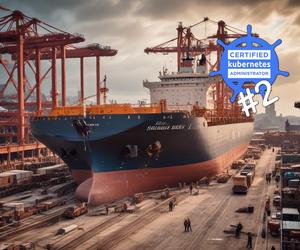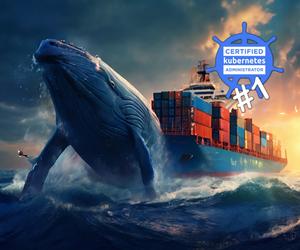DevOps Coach and DevOps Engineer: Understanding their Roles in DevOps Transformation
In the world of IT, the DevOps methodology has become increasingly popular due to its advantages in terms of collaboration, efficiency, and deployment speed. Two key roles are emerging within organizations that seek to adopt DevOps: the DevOps coach and the DevOps engineer. While their responsibilities may overlap, they have distinct roles that contribute in a complementary manner to the success of an organization’s DevOps transformation.
- The Role of the DevOps Coach
- The Role of the DevOps Engineer
- Integration of DevOps Coach and DevOps Engineer in DevOps Transformation
- Conclusion
The Role of the DevOps Coach
The DevOps coach is a professional responsible for guiding, training, and supporting teams in the adoption of DevOps principles and practices. Their main role is to create an environment conducive to collaboration and continuous improvement. Here are the key responsibilities of a DevOps coach:
Promoting DevOps Culture
The DevOps coach is responsible for disseminating the DevOps culture within the organization. They help teams understand the core values of DevOps, such as collaboration, transparency, shared responsibility, and customer orientation.
Training and Awareness
The DevOps coach provides training and awareness to teams on DevOps practices and tools. They help strengthen the skills and knowledge of team members to facilitate the adoption of DevOps.
Change Facilitation
DevOps coaches facilitate transition and change by working closely with teams to identify obstacles, solve problems, and foster acceptance of new practices.
Cross-Functional Collaboration
An essential aspect of DevOps is close collaboration between development and operations teams. DevOps coaches facilitate this collaboration by encouraging communication, eliminating organizational silos, and promoting collective decision-making.
Assessment and Continuous Improvement
DevOps coaches assess the organization’s DevOps performance, identify areas for improvement, and recommend adjustments. They use metrics and indicators to evaluate the effectiveness of the DevOps transformation.
The Role of the DevOps Engineer
The DevOps engineer is a technical expert who focuses on setting up and managing the infrastructure and tools required for practicing DevOps. Here is an overview of the responsibilities of a DevOps engineer:
Infrastructure Automation
The DevOps engineer designs and implements automated infrastructures, such as development environments, deployment systems, and continuous integration and continuous deployment pipelines. They use automation tools to enhance the efficiency and reproducibility of deployments.
Management of DevOps Tools
The DevOps engineer is responsible for selecting, configuring, and managing the tools and technologies used in the DevOps ecosystem. This may include version control tools, automated deployment tools, monitoring tools, and containerization platforms.
Security and Compliance
The DevOps engineer incorporates security and compliance practices throughout the lifecycle of applications and infrastructures. They ensure that appropriate security controls are in place and compliance standards are met.
Troubleshooting and Incident Management
As a technical expert, the DevOps engineer plays a crucial role in troubleshooting and managing incidents related to infrastructures and DevOps tools. They are responsible for diagnosing and resolving operational issues to ensure optimal availability and performance.
Performance Optimization
The DevOps engineer works towards continuous improvement of system performance and DevOps processes. They perform performance analysis, identify bottlenecks, and implement solutions to optimize deployment times, scalability, and overall infrastructure efficiency.
Integration of DevOps Coach and DevOps Engineer in DevOps Transformation
The DevOps coach and the DevOps engineer work together to facilitate DevOps transformation within an organization. Their roles complement each other to achieve the goals of the DevOps transition. Here’s how they integrate:
Close Collaboration
The DevOps coach and the DevOps engineer work closely together to align processes, tools, and practices with the DevOps culture. They share their respective expertise to ensure a smooth and effective adoption of DevOps.
Training and Awareness
The DevOps coach trains teams on DevOps principles and practices, while the DevOps engineer provides specific technical training on DevOps tools and technologies. Together, they create a comprehensive learning environment for team members.
Change Management
The DevOps coach facilitates cultural and organizational change, while the DevOps engineer ensures that technical changes are smoothly implemented. They work together to minimize disruptions and address issues that arise during the transformation.
Measurement and Improvement
The DevOps coach defines metrics and indicators to assess the progress of the DevOps transformation, while the DevOps engineer provides the technical data needed to measure performance and identify improvement opportunities.
Conclusion
In conclusion, the DevOps coach and the DevOps engineer are key players in DevOps transformation. While the DevOps coach focuses on culture, processes, and organizational change, the DevOps engineer brings technical expertise to implement the necessary infrastructures and tools. Their close collaboration combines the human and technical aspects of DevOps, thus fostering a successful transformation.
Together, the DevOps coach and the DevOps engineer guide teams towards a culture of collaboration, automation, and continuous improvement. The DevOps coach plays a vital role in adopting DevOps principles, training teams, and creating an environment conducive to change. On the other hand, the DevOps engineer focuses on process automation, tool and infrastructure management, as well as technical performance optimization.
It is important to recognize that the success of a DevOps transformation relies on the collaboration and coordination between these two roles. Together, they support teams in adopting DevOps, foster a culture of collaboration and continuous improvement, and contribute to accelerating development and deployment processes. By integrating the skills and contributions of the DevOps coach and the DevOps engineer, organizations can fully leverage the benefits of the DevOps methodology to achieve faster, more reliable, and more innovative outcomes.





